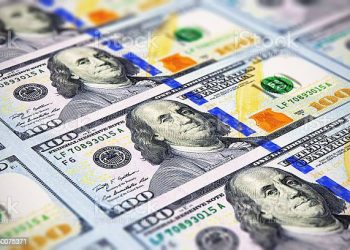Global equities and U.S. Treasury yields experienced a downward trend on Wednesday as bearish sentiment dominated the markets. Investors anxiously awaited a crucial vote in Congress regarding the raising of the U.S. debt ceiling. The U.S. House of Representatives was scheduled to vote on a bipartisan deal that aimed to increase the ceiling of $31.4 trillion, ensuring that the government could avoid defaulting on its financial obligations.
The outcome of the bill’s passage through the House remained uncertain, given the slim majority held by the Republicans. Furthermore, the level of support from House Democrats remained unclear. Analysts highlighted the potential for complications in the voting process, leading to an atmosphere of apprehension among investors.
Ryan Detrick, the chief market strategist at Carson Group, acknowledged the prevailing unease, stating, “The jitters are expected as there is a very small chance there could be an issue with the vote later tonight. We don’t anticipate that, but until the final paper is signed on the president’s desk, some apprehension isn’t abnormal.” Detrick also noted that profit-taking ahead of the month-end was contributing to market volatility.
Global markets reflected the cautious sentiment, with the MSCI world equity index, which tracks shares in 50 countries, falling by 1.05%. European stocks also experienced a decline, with the STOXX index shedding 1.15%.
On Wall Street, all three main indexes registered losses, led by technology, financials, consumer discretionary, and industrials. The Dow Jones Industrial Average fell 0.75% to 32,793.68, the S&P 500 lost 0.81% to 4,171.32, and the Nasdaq Composite dropped 0.77% to 12,916.85.
In response to the market sentiment, benchmark U.S. 10-year Treasury yields moved lower to 3.656%. Simultaneously, the U.S. dollar strengthened significantly, reaching a more than two-month high. This rise in the dollar was fueled by reports of cooling European inflation and concerns over China’s economic recovery.
The dollar index rose by 0.404%, while the euro fell by 0.67% to $1.0661.
Oil prices also suffered due to demand concerns triggered by weak economic data from China, the world’s leading importer. Brent crude futures for August delivery dropped by 0.91% to $72.87 per barrel, and U.S. West Texas Intermediate crude (WTI) fell by 0.68% to $68.99 per barrel.
Despite the strength of the dollar, gold managed to maintain its firmness, although optimism surrounding a potential U.S. debt deal put the precious metal on track for its first monthly decline in three months. Spot gold increased by 0.7% to $1,972.29 per ounce, while U.S. gold futures gained 0.70% to $1,971.80 per ounce.
As the vote on the U.S. debt ceiling draws near, market participants remain on edge, closely monitoring the outcome for potential implications on global equities, Treasury yields, and the U.S. dollar.











